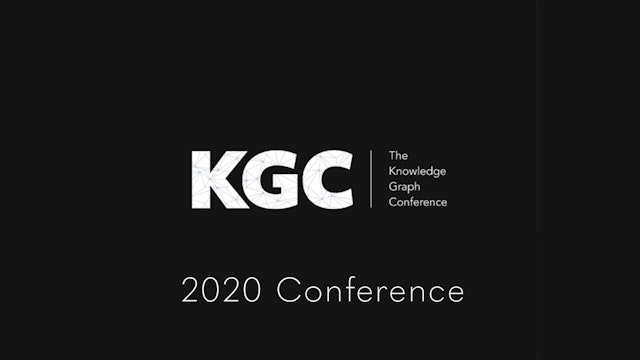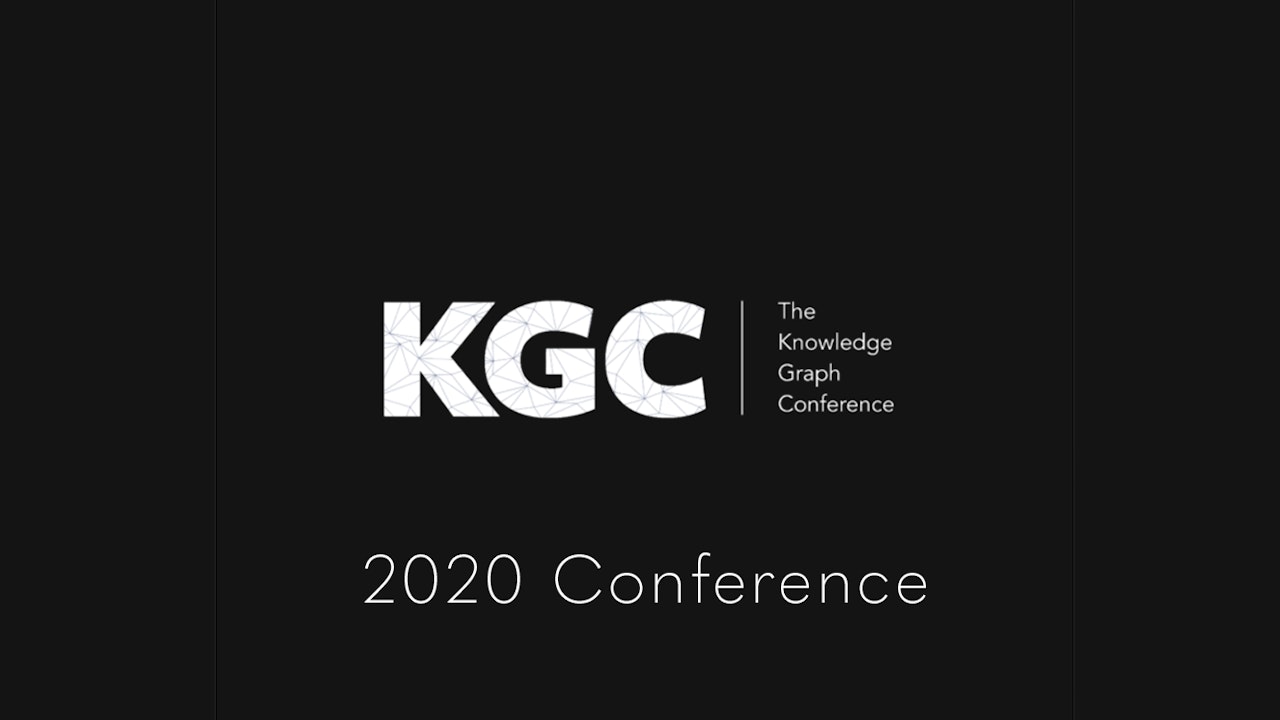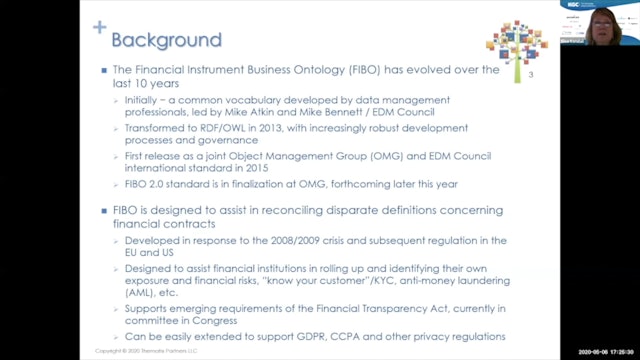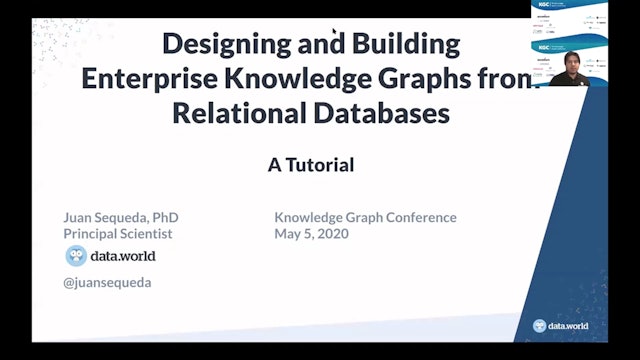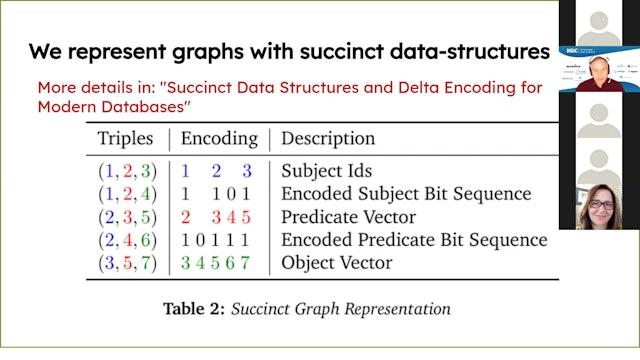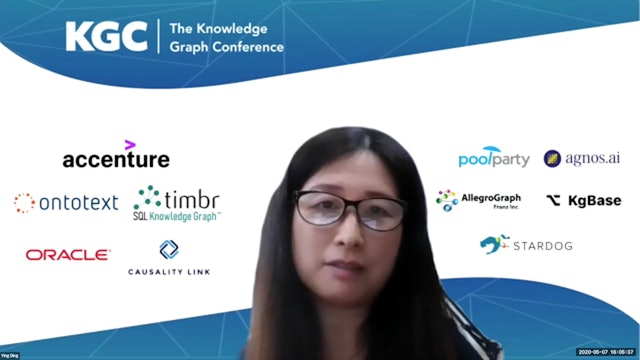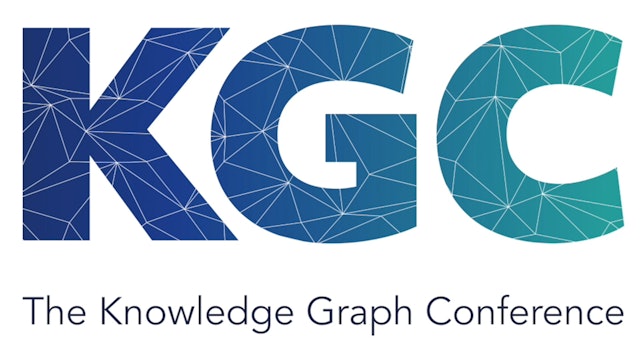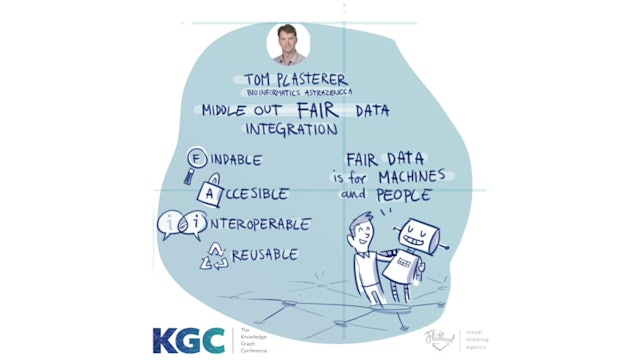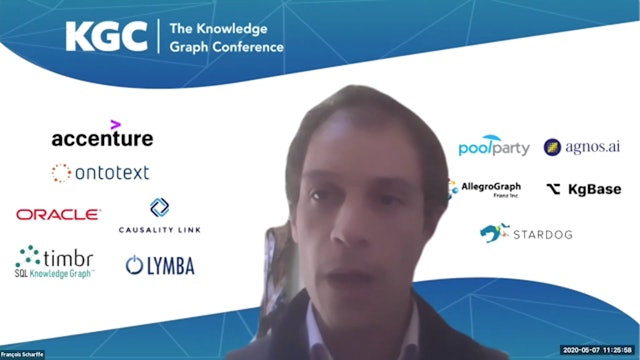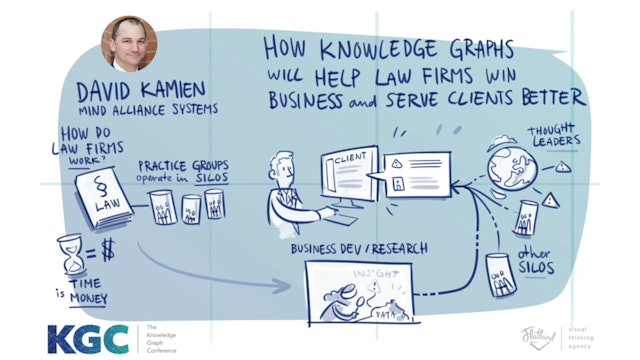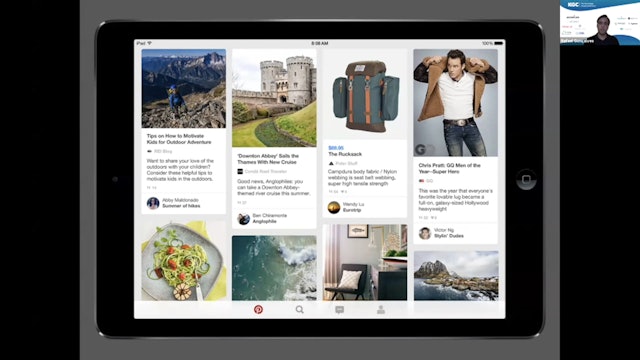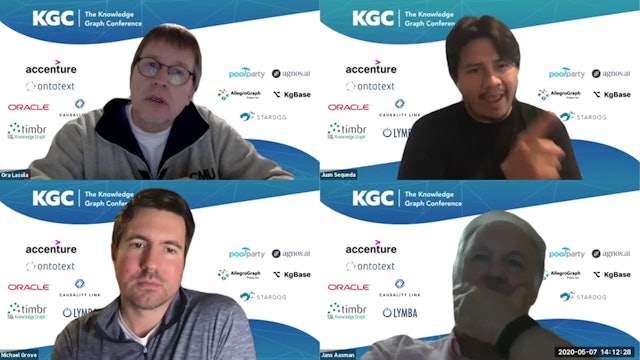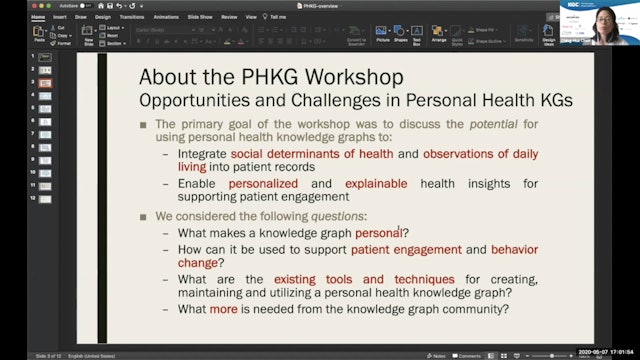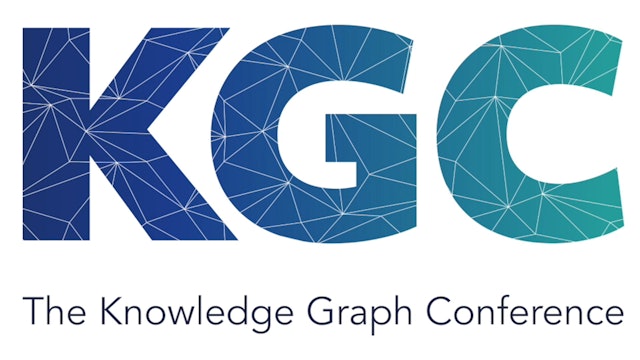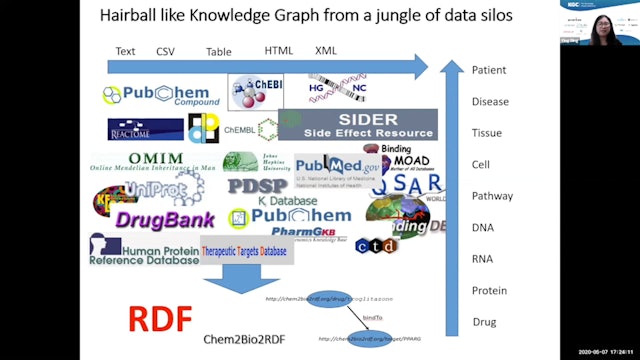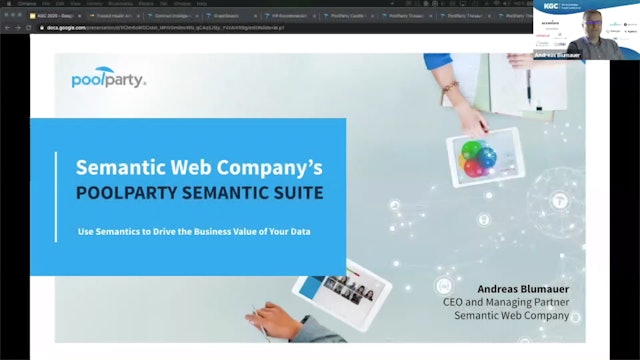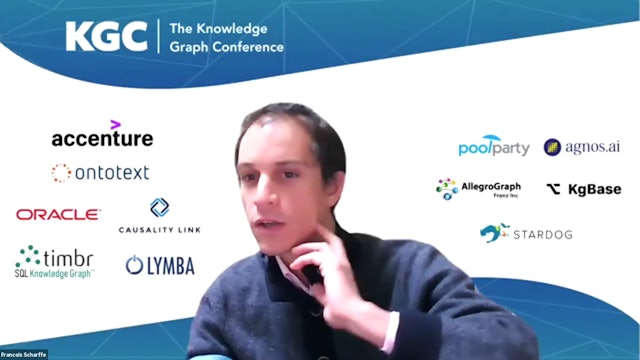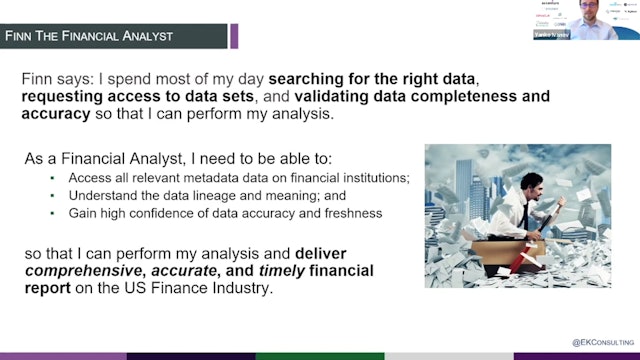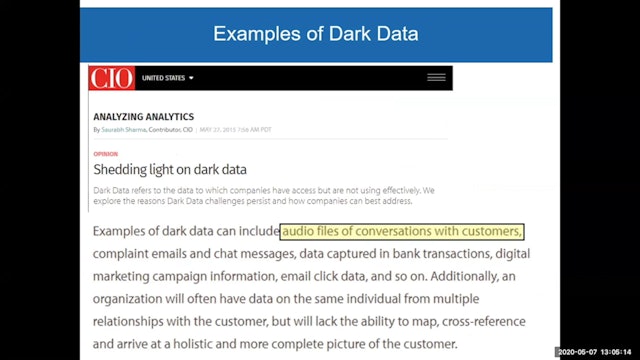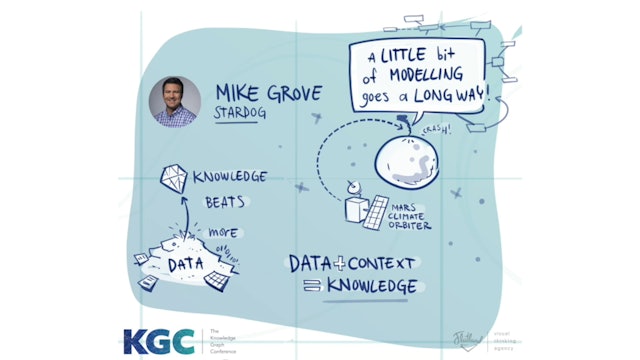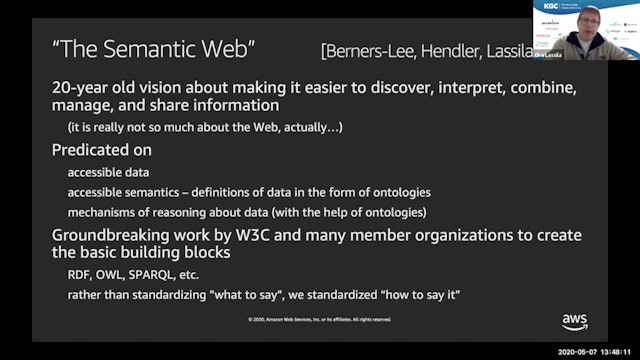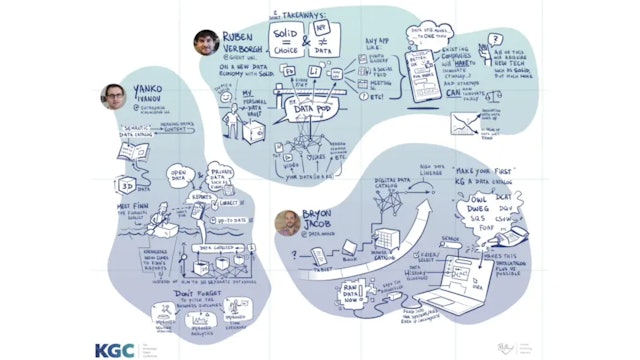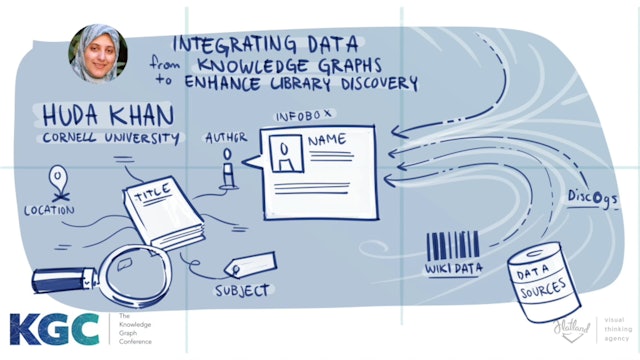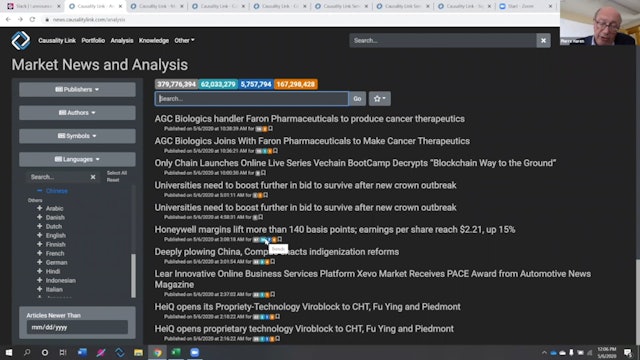-
Preview Elisa Kendall
-
Designing and Building Knowledge Graphs from Relational Databases
Knowledge Graphs are fulfilling the vision of creating intelligent systems that integrate knowledge and data at large scale. We observe the adoption of Knowledge Graphs by the Googles of the world. However, not everybody is a Google. Enterprises still struggle to understand their relational datab...
-
Tutorial Introduction to Logic Knowledge Graphs
A hands-on tutorial that will introduce logic knowledge graphs via TerminusDB to those beginning or looking to develop their knowledge graph journey.
-
Panel | Frontiers in Data Intelligence
Panel: Frontiers in Data Intelligence. What is data intelligence? Who owns knowledge graphs? How do we define contexts of use for knowledge graphs? How to make sure knowledge graphs offer equitable utility?
-
Q&A | Jans Aasman, Mike Grove, and Dr. Ora Lassila
Juan Sequeda from data.world moderates this Q&A with Jans Aasman from Allegro Graph, Mike Grove from Stardog and Dr. Ora Lassila from AWS.
-
Q&A | Huda Khan, David Kamien and Rafael Goncalves
Q&A with Huda Khan from Cornell University, David Kamien from Mind Alliances System and Rafael Goncalves from Stanford University.
-
Panel | Frontiers in Data Intelligence
Panel: Frontiers in Data Intelligence. What is data intelligence? Who owns knowledge graphs? How do we define contexts of use for knowledge graphs? How to make sure knowledge graphs offer equitable utility?
-
Middle-Out FAIR Data Integration with Knowledge Graphs
An extremely powerful and efficient use for Knowledge Graphs is to unite well-understood domains of knowledge alongside novel and specific business/scientific questions. Using small ontologies that embed large reference taxonomies, we are able to go from tactical scientific questions (bottom-up) ...
-
Q&A | John F Sowa and Vassil Momtchev
Francois Scharffe leads the Q&A between Vassil Momtchev from Ontotext and John Sowa from Kyndi.
-
How Knowledge Graphs can help Law Firms win Business and Serve Clients Better
Law firms are starting to build knowledge graphs to power next-generation marketing and business development applications that efficiently integrate data and help deliver the most important intelligence insights to the right people sooner. These systems help firms spot opportunities sooner, autho...
-
Use of OWL and Semantic Web Technologies at Pinterest
Pinterest is a popular Web application that has over 250 million active users. It is a visual discovery engine for finding ideas for recipes, fashion, weddings, home decoration, and much more. In the last year, the company decided to create a knowledge graph that aims to represent the vast amount...
-
Q&A | Jans Aasman, Mike Grove, and Dr. Ora Lassila
Juan Sequeda from data.world moderates this Q&A with Jans Aasman from Allegro Graph, Mike Grove from Stardog and Dr. Ora Lassila from AWS.
-
Workshop Summary | The Personal Health Knowledge Graph
Ching-Hua Chen summarizes and talks about the workshop on Personal Health Knowledge Graph.
-
Workshop summary | Knowledge Graph for Social Good
Lambert Hogenhout offers a summary of the workshop Knowledge Graph for Social Good
-
Mining Knowledge Graph for Drug Discovery
2020 Talk: Knowledge Graph for Drug Discovery: A critical barrier in current drug discovery is the inability to utilize public datasets in an integrated fashion to fully understand the actions of drugs and chemical compounds on biological systems. There is a need to intelligently integrate hetero...
-
From Card Sorting to Data Automation: PoolParty—A Complete Semantic Middleware
Andreas Blumauer is CEO of Semantic Web Company and he is here to show how to use semantics to drive the business value of your data using the PoolParty Semantic Suite. Andreas has a mission to free customers from data silos and enrich the data with semantic metadata and he believes the software ...
-
Rich Context | A Knowledge Graph for Linking Datasets with Research Outcomes
The Rich Context project at NYU Wagner is the knowledge graph complement to the ADRF platform for cross-agency social science research using sensitive data, currently used by 50+ agencies. Rich Context represents metadata about datasets and their use in research which in turn influences public po...
-
The Curious Case of the Semantic Data Catalog
The Curious Case of the Semantic Data Catalog: Knowledge graphs have been on the rise and organizations have found a variety of use cases for the technology. One specific type of use case is the implementation of a knowledge graph as a semantic data catalog. With the inherent power of the technol...
-
The Knowledge Graph that Listens
Enterprises that are building Knowledge Graphs are rapidly getting a grip on unstructured data with current advances in Natural Language Processing (NLP) techniques. But there is still a large mass of unstructured data that is untapped and that is spoken conversations with customers. Speech to te...
-
Insufficient Facts Always Invite Danger: Combat them with a Logical Model
Insufficient Facts Always Invite Danger: Combat Them with a Logical Model While understanding the context of data is key, it's important to remember there is no universal context. What makes sense in one case may not in another. We see this often in MDM scenarios; we can't agree on the definition...
-
Are Knowledge Graphs a Good Thing?
Yes. Why? Because building a knowledge graph means you are consolidating your important knowledge assets, and that forces you to think of the “bigger picture” of all the data you have in your organization including shared, common domain models. You are not merely shoving data into a warehouse, bu...
-
Q&A | Ruben Verborgh, Byron Jacob, and Yanko Ivanov
Q&A with Ruben Verborgh from Ghent University, Byron Jacob from data.world and Yanko Ivanov from Enterprise Knowledge
-
Integrating data from knowledge graphs to enhance library discovery
As part of the Linked Data For Production: Pathway to Implementation (LD4P2) project’s larger goal of building a pathway to the use of linked data in the description of library resources, we are exploring the integration of linked data sources in library discovery interfaces. Through a series of ...
-
Demo Causality Link
Leveraging a graph of causal forces acting on financial markets

